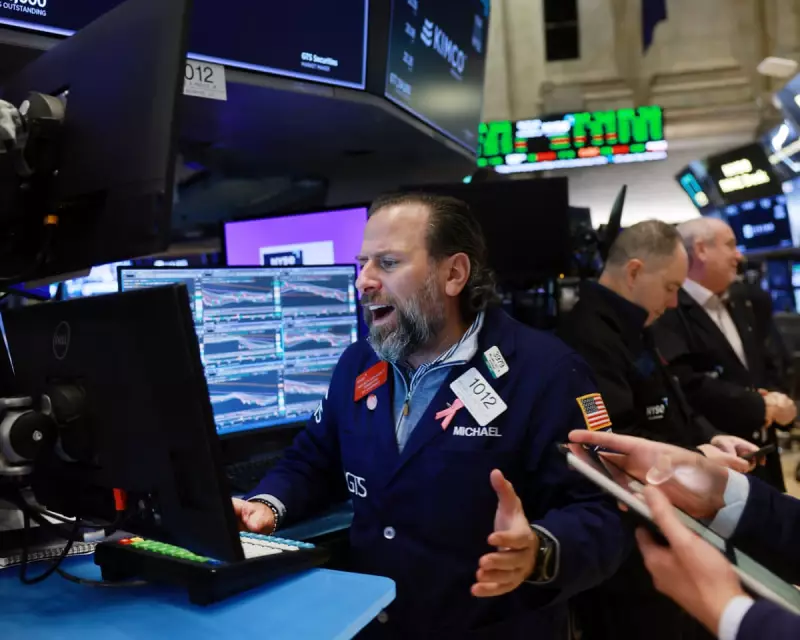
AI Euphoria Cools as Stock Markets Retreat
Fears of an inflating artificial intelligence bubble returned to haunt investors on Thursday, causing leading US stock markets to fall sharply. This downturn occurred less than 24 hours after a powerful rally, which was itself sparked by impressive financial results from the chipmaking giant Nvidia.
Wall Street had initially surged following Nvidia's report, which reassured the market about robust demand for its advanced data centre chips. However, this optimism was short-lived, and the very technology stocks at the centre of the AI boom soon came under significant selling pressure.
Key Market Indices See Significant Declines
The sell-off was widespread across major indices. The benchmark S&P 500 closed down 1.6%, while the Dow Jones Industrial Average finished 0.8% lower in New York. The technology-focused Nasdaq Composite was hit hardest, closing with a loss of 2.2%.
This contrasted with trading in other global markets earlier in the day. In London, the FTSE 100 managed a 0.2% gain, and Frankfurt's Dax index rose by 0.5%. Meanwhile, the Nikkei 225 in Tokyo had climbed a substantial 2.65%.
Spending Spree Fuels Bubble Concerns
Nvidia, now valued at a staggering $4.4 trillion, has been the primary driver behind a massive surge in the valuations of firms associated with artificial intelligence. As companies rush to invest heavily in chips and data centres to secure their position in the AI race, concerns that a speculative bubble is forming have intensified.
Although Nvidia's highly anticipated earnings exceeded expectations on Wednesday, highlighting the chipmaker's continued strong demand, worries persist about the companies buying those chips. The enormous capital expenditure these 'hyper-scalers' are dedicating to AI infrastructure is a key point of anxiety for investors.
Robert Pavlik, a senior portfolio manager at Dakota Wealth, explained the dichotomy: "The people who are selling the semiconductors to help power AI doesn't alleviate the concerns that some of these hyper-scalers are spending way too much money on building the AI infrastructure. You have the company that's benefiting from it, but the others are still spending too much money."
Reflecting this nervous sentiment, shares in Nvidia itself sank 3.2% during the session. Furthermore, the VIX index, a key measure of market volatility, climbed by 8%, indicating rising trader anxiety.
Adding to the market's mixed signals, a jobs report released on Thursday morning showed healthy growth in the US labour market for September, but also a slight rise in the unemployment rate. This data reinforced the prevailing expectation that policymakers at the Federal Reserve will likely keep interest rates on hold at their next meeting in December.





